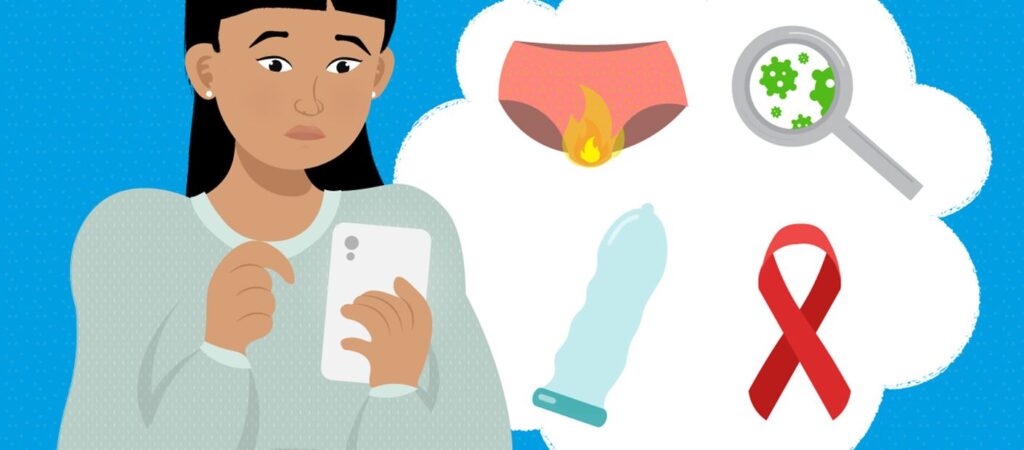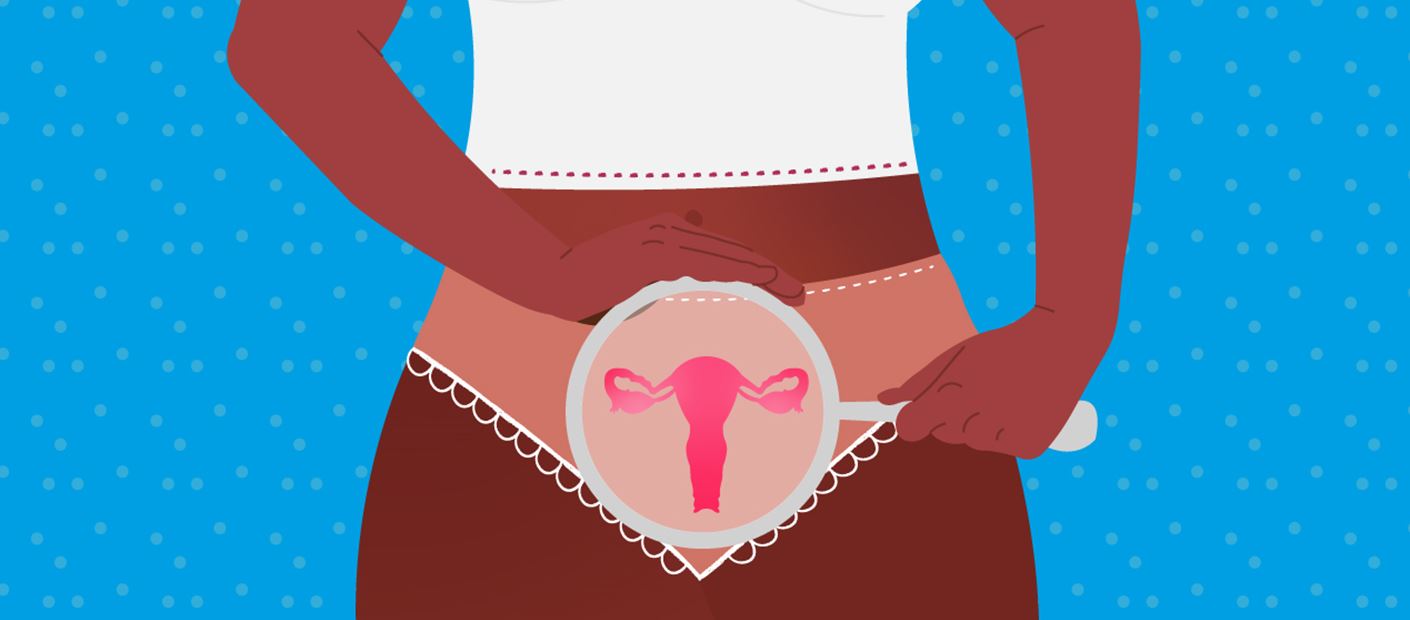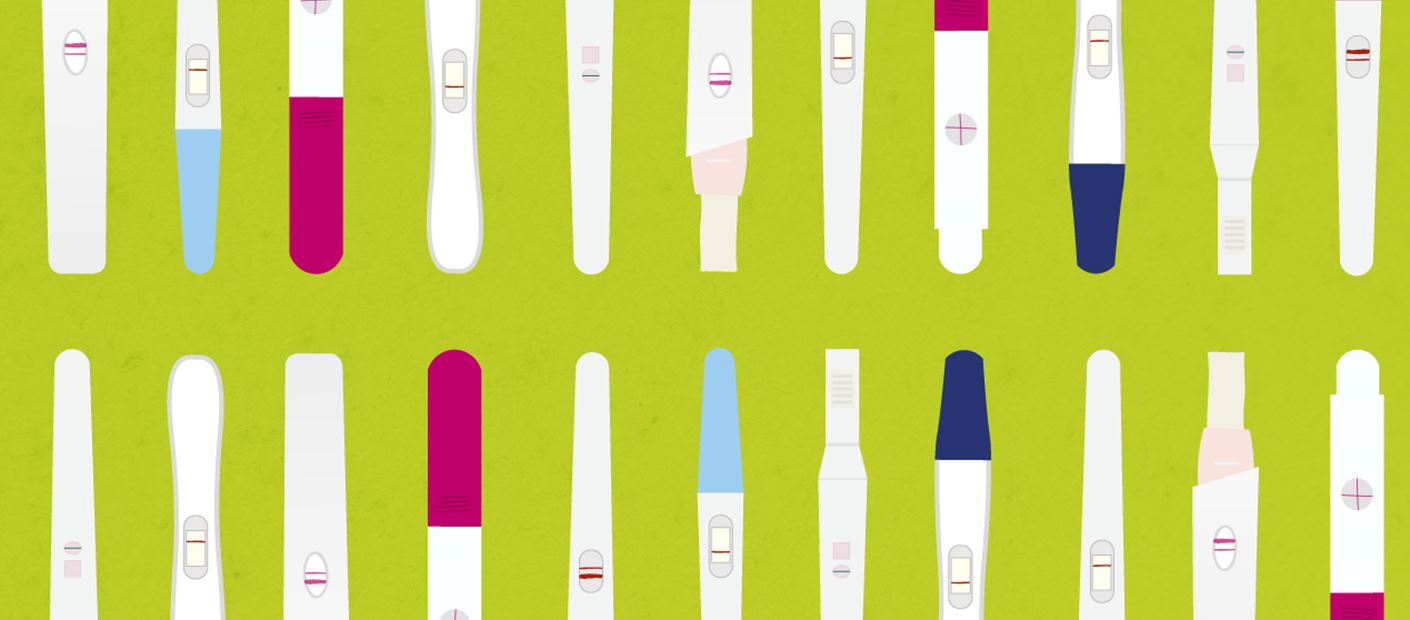
If you’re worried you’ve caught a Sexually Transmitted Infection (STI), you won’t be alone. STIs, which are also known as STDs (sexually transmitted diseases), are very common.
Some STIs have symptoms: you might notice a change in your vaginal discharge, a rash, or an itch. A boil or warts in your vaginal area could also be a sign of an STI. But others have no symptoms at all. The good news is most STIs are treatable, especially if you catch them early.
How will I know if I have an STI?
The truth is, you might not.
Lots of people don’t know they have an STI. That’s because some of the most common ones don’t give you symptoms, or the symptoms may take a while to show. So if you think you might have been at risk of catching an STI, the only way to be completely sure is to have a test.
When women do get STI symptoms, they might include:
- Unusual vaginal discharge
- Pain when you wee
- Lumps, warts, blisters, boils, or a rash around your vulva (your genital area) or anus
- Vaginal bleeding after sex or between periods
- Itchy vulva or anus
- Discharge from your anus
When should I get tested for an STI?
If you’ve had sex without using a condom, you could be at risk of having caught an STI. This includes vaginal, anal, and oral sex. Some STIs can also be passed on through touching genitals or sharing sex toys.
Come and visit a Marie Stopes clinic as soon as you can so you can get checked out, whether you have symptoms or not. STIs are much easier to treat early on. If you don’t get treatment, a sexually transmitted infection can cause more problems with your health. It can even affect your fertility.
You might feel anxious or embarrassed about coming to us. It can feel like a big deal. Remember though that we do these tests all the time and won’t be judging you. The important thing is that you find out if you have an infection. If you don’t have an STI, you’ll feel relieved. But if you do have an infection, it’s much better to know, and start treatment, than to ignore it.
What are the most common STIs and what are the symptoms?
Chlamydia and Gonorrhoea
Chlamydia and Gonorrhoea infections are both easily treated. But without treatment, they can spread and become more serious and painful.
The symptoms of these infections are similar. You may bleed after sex or in between periods. Sex and weeing may also be painful. You may also have heavier vaginal discharge that looks yellow or greenish. But many women don’t get any symptoms at all.
Trichomoniasis
Trichomoniasis is caused by a tiny parasite. You may have a heavier, bad-smelling, or frothy vaginal discharge which may be yellowy green. You may also get itchy, sore ulcers on your vulva. Your lower tummy may be painful, especially when you wee or have sex. But only around half of women get symptoms.
Genital warts
Genital warts look like tiny pieces of cauliflower around your vagina or anus. They can be white, skin-coloured, or red though sometimes they’re too small to see. Warts may bleed if you catch them on your underwear.
Genital herpes
Genital herpes causes lots of painful blisters or boils around your vulva, anus, thighs, or bottom. These will burst and become red open sores or ulcers. It may be painful when you wee and you may generally feel ill and tired with a headache or fever.
Pubic lice
Pubic lice are tiny parasites, also known as crabs, which look like nits or lice in your pubic hair. They usually get passed on during sex but you can get them from infested bedding, clothes, or towels. They make you itch, which will be worse at night. You may also get small blue spots or red pimples.
Scabies
Scabies is caused by a parasite that can be passed through normal touching as well as sex. It’s very infectious. The parasites are too small to see but you’ll be itchy, especially at night. You may see tiny thread-like lines on your hands and wrists or red pimples that start between your fingers and spread across your body.
Syphilis
A few weeks after being infected with syphilis you’ll get a painless hard ulcer on your vagina or anus. But you may not notice this. You may also have lumps in your neck, groin, or armpits.
Later symptoms include:
- a blotchy red rash on your hands and feet
- small warts around your vulva
- mouth ulcers
- fever
- headache
If it’s not treated syphilis can spread to your eyes and brain causing life-threatening problems.
HIV and AIDS
Human immunodeficiency virus (HIV) makes your immune system weak and vulnerable to other infections and diseases.
HIV usually starts with a flu-like illness a few weeks after getting it. If left untreated, HIV causes acquired immune deficiency syndrome (AIDS), which is life-threatening. But with early treatment, you can live a long and healthy life.
I’m worried I might have an STI. What should I do?
If you’re at risk of having caught an STI, we can help test and treat you quickly. Talk to us now or visit one of our clinics as soon as you can. It’s easy to put it off but the sooner you go, the better.
In the meantime, avoid having sex until you have been tested. You can pass the STI on to other people you have sex with, even if you don’t have symptoms. If avoiding sex isn’t possible, then always use a condom.








